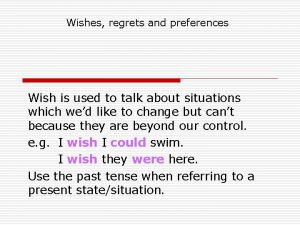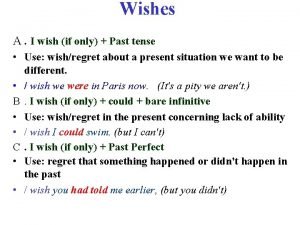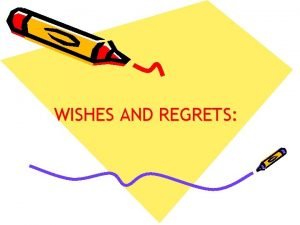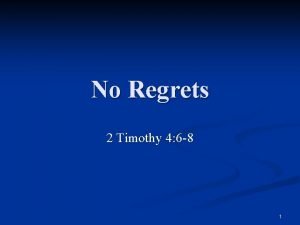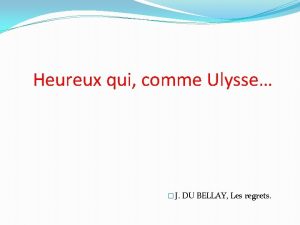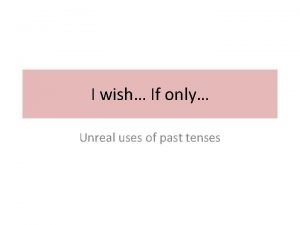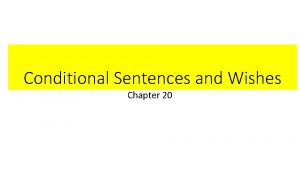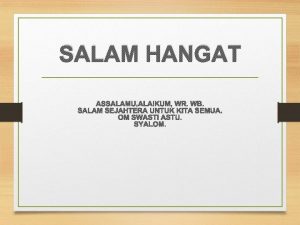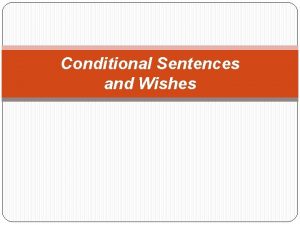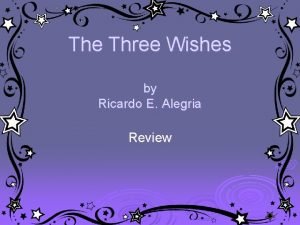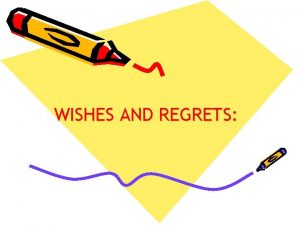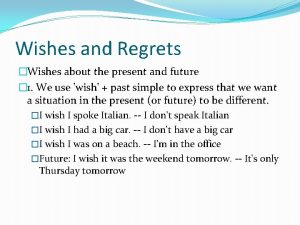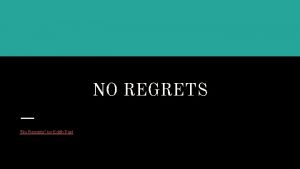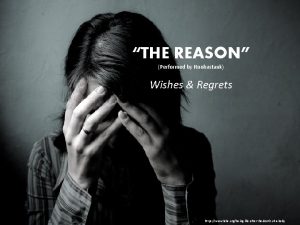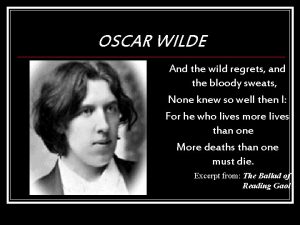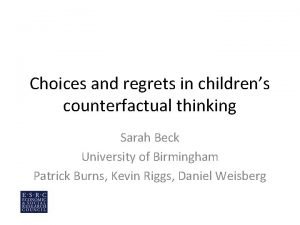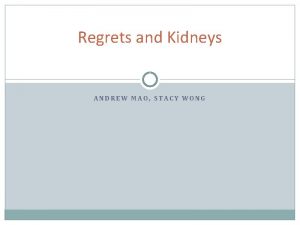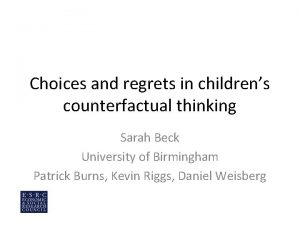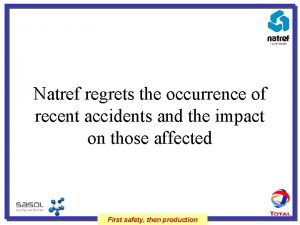WISHES AND REGRETS WISHES AND REGRETS With o














- Slides: 14

WISHES AND REGRETS:

WISHES AND REGRETS: • With: o Wish / if only o It’s time / it’s high time/ it’s about time o Would prefer it if/would have preferred it if/ would prefer o Would sooner/ would rather

Wish/ if only: We use them with past simple and past continuous to express present wishes: I wish Tom was/were here now. If only I knew someone who could help me. All the staff wish you weren’t leaving so soon. If only it wasn’t/weren’t raining!

Wish/ if only: We use them with past perfect to express past wishes and very often also to express regrets: If only I had known you were coming. I wish I had known you were coming.

Wish/ if only: We use them with “would” to express future wishes: I wish more young people would vote, but they won’t. If only it would stop raining, we could go out.

It’s time/ it’s high time/ it’s about time: We use them with past simple and past continuous to express what the speaker would like to happen now/ in the future: It’s time you had a haircut. It’s high time you got a job. It’s about time we were leaving.

It’s time/ it’s high time/ it’s about time: We use them with to-infinitive when there is no subject after “time” to express what the speaker would like to happen now/ in the future: It’s time to buy a new car.

Would prefer it if: We use it with past simple and past continuous to express preference now/ in the future: I would prefer it if people didn’t use their mobile phone on public transport. I’d prefer it if we were meeting/met at the cinema.

Would have preferred it if: We use it with past perfect to express preference in the past and very often also to express regrets : We would have preferred it if you had warned us at the time.

Would prefer: We use it with to-infinitive when there is no subject after “prefer” to express preference now/ in the future: I’d prefer to get involved.

Would rather/would sooner: We use them with past simple and past continuous to express preference now/ in the future: I would rather you went home now. I’d sooner you came next week. I’d rather my family were spending/spent more time together.

Would rather/would sooner: We use them with past perfect to express preference in the past and very often also to express regrets : I’d rather you had told me before.

Would rather/would sooner: We use them with zero infinitive when there is no subject after “rather/sooner” to express preference now/ in the future : I’d rather have something to eat.

PAST TENSES Created by: Carmen Luisa Pérez Amaro
 Wishes and regrets
Wishes and regrets Expressing wishes and regrets
Expressing wishes and regrets The past tense of wish
The past tense of wish Wish and regrets
Wish and regrets Critère de laplace
Critère de laplace 2 timothy 4:7-8 meaning
2 timothy 4:7-8 meaning Heureux qui comme ulysse recueil
Heureux qui comme ulysse recueil Hope in continuous tense
Hope in continuous tense If only + past perfect
If only + past perfect Chapter 20 conditional sentences and wishes
Chapter 20 conditional sentences and wishes Best wishes warmest regards meaning
Best wishes warmest regards meaning Verb forms following wish
Verb forms following wish Wish clause exercise
Wish clause exercise The three wishes moral lesson
The three wishes moral lesson Annapurna mantra before eating
Annapurna mantra before eating
